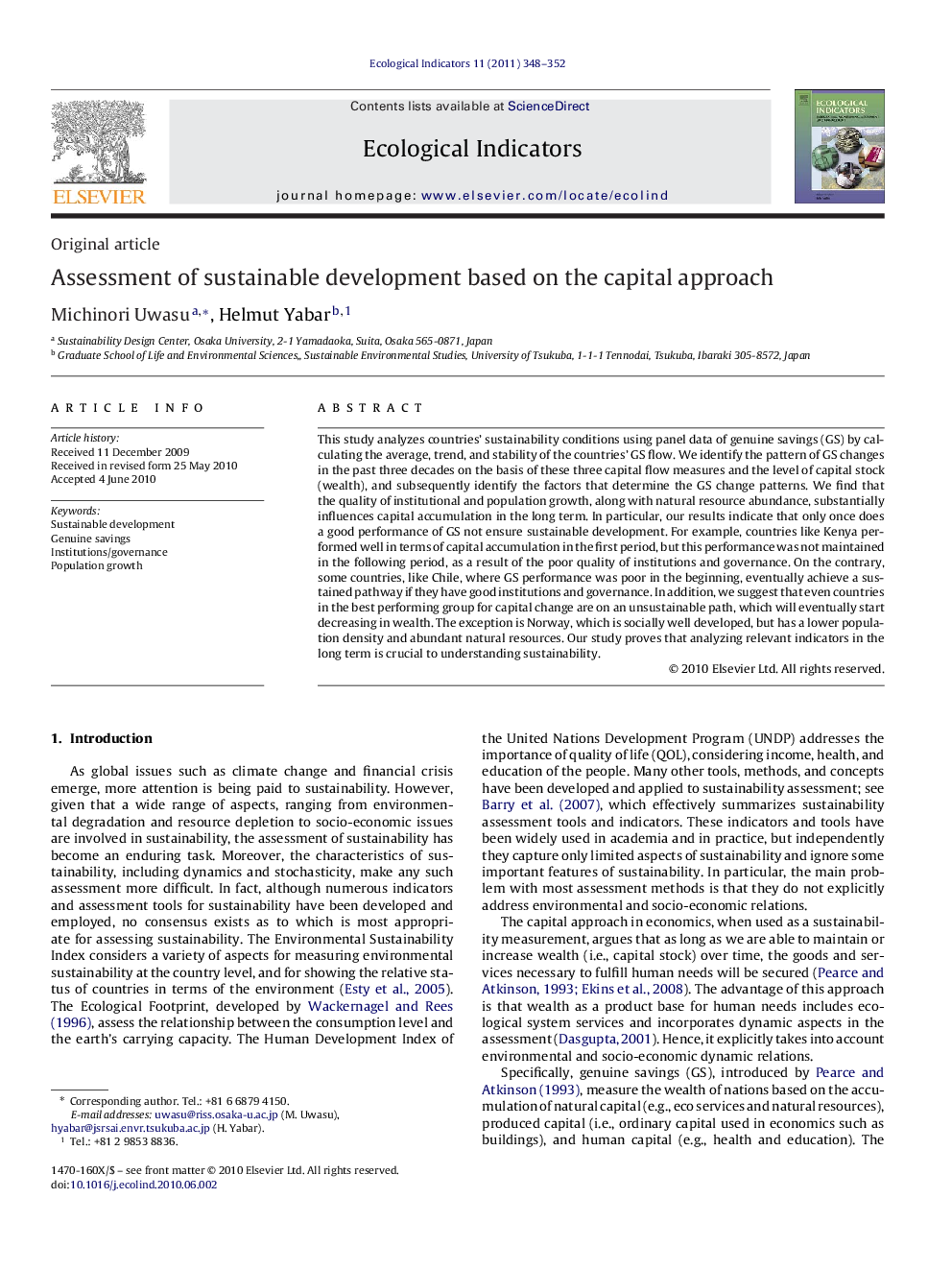| کد مقاله | کد نشریه | سال انتشار | مقاله انگلیسی | نسخه تمام متن |
|---|---|---|---|---|
| 4374110 | 1303162 | 2011 | 5 صفحه PDF | دانلود رایگان |

This study analyzes countries’ sustainability conditions using panel data of genuine savings (GS) by calculating the average, trend, and stability of the countries’ GS flow. We identify the pattern of GS changes in the past three decades on the basis of these three capital flow measures and the level of capital stock (wealth), and subsequently identify the factors that determine the GS change patterns. We find that the quality of institutional and population growth, along with natural resource abundance, substantially influences capital accumulation in the long term. In particular, our results indicate that only once does a good performance of GS not ensure sustainable development. For example, countries like Kenya performed well in terms of capital accumulation in the first period, but this performance was not maintained in the following period, as a result of the poor quality of institutions and governance. On the contrary, some countries, like Chile, where GS performance was poor in the beginning, eventually achieve a sustained pathway if they have good institutions and governance. In addition, we suggest that even countries in the best performing group for capital change are on an unsustainable path, which will eventually start decreasing in wealth. The exception is Norway, which is socially well developed, but has a lower population density and abundant natural resources. Our study proves that analyzing relevant indicators in the long term is crucial to understanding sustainability.
Journal: Ecological Indicators - Volume 11, Issue 2, March 2011, Pages 348–352